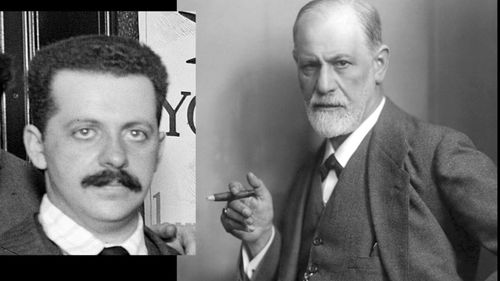How Propaganda Became The Modern"PR" Industry
Oct 26, 2023 · 2 mins read
0
Share

The word “propaganda” is from the Latin to propagate. In the early 17th century, the Vatican set up the ‘Office for the Propagation of the Faith’ to run foreign missions of the Catholic Church. It was a fight against heresy, particularly Protestantism.
Save
Share
For a very long time, propaganda simply meant the concerted effort to promote a particular philosophy, set of ideas or practices. It was only in the 20th century, when governments began to use it inspire and justify war to the masses, that the term gained its negative tone.
Save
Share
As WW1 broke out, Britain’s and America’s propagandists demonized Germans as ‘the Hun’ and Germany as the seat of ‘Prussian barbarism’, while painting themselves as noble bastions of democracy and freedom.
Save
Share
Edward Bernays (whose uncle was Sigmund Freud) played a key role in the development of political propaganda in America. His work in the Woodrow Wilson administration was such a success that he parlayed what he learned into creating a new field: ‘Public Relations’.
Save
Share
Bernays portrayed PR as an intelligent step up from the hucksterism of advertising and publicity, and he became recognized as the master of this new “manufacture of consent”, as Walter Lippman (Public Opinion, 1922) famously described it.
Save
Share
Democracy could only work, Lippman believed, if there was a class of disinterested administrators sifting the data and making wise decisions. Propaganda simply meant explaining a preferred course of action and making sure people were behind it.
Save
Share
Bernays’ parents had emigrated to America when he was a baby, but he stayed in contact with his famous uncle. He would add Freud’s thinking on the basic irrationality of humans to his intellectual armory, plus the new thinking on ‘crowd psychology’.
Save
Share
Bernays was influenced by Wilfred Trotter (for a time Freud’s personal physician and the author of Instincts of the Herd in Peace and War, 1916) and Gustav Le Bon (The Crowd: A Study of the Popular Mind, 1895). His own book, Propaganda, would come out in 1928.
Save
Share
Was it possible to get a population to do things as if by flicking a switch? Propaganda will always be an inexact science, Bernays ruefully notes, because it deals with human beings, who although they may be led to some extent, are not so easily read.
Save
Share
Propaganda is a neutral tool that can be used for good or ill, but in order to have power in modern society once must know its techniques. In the next Memo I’ll outline some of Bernays’ tactics – which are still very powerful today.

Save
Share
0